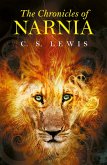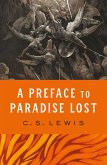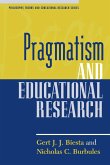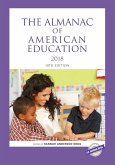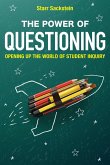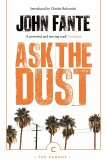- Gebundenes Buch
- Merkliste
- Auf die Merkliste
- Bewerten Bewerten
- Teilen
- Produkt teilen
- Produkterinnerung
- Produkterinnerung
This book explores the benefits of reading â Great Books,â and is virtually unique in detailing what a series of Great Books classes has looked like over the past decades.
Andere Kunden interessierten sich auch für
![The Chronicles of Narnia The Chronicles of Narnia]() C. S. LewisThe Chronicles of Narnia24,99 €
C. S. LewisThe Chronicles of Narnia24,99 €![A Preface to Paradise Lost A Preface to Paradise Lost]() C. S. LewisA Preface to Paradise Lost13,99 €
C. S. LewisA Preface to Paradise Lost13,99 €![Pragmatism and Educational Research Pragmatism and Educational Research]() Gert J. J. BiestaPragmatism and Educational Research51,99 €
Gert J. J. BiestaPragmatism and Educational Research51,99 €![The Almanac of American Education 2018 The Almanac of American Education 2018]() The Almanac of American Education 2018105,99 €
The Almanac of American Education 2018105,99 €![The Children Left Behind The Children Left Behind]() Daniel L. DukeThe Children Left Behind103,99 €
Daniel L. DukeThe Children Left Behind103,99 €![The Power of Questioning The Power of Questioning]() Starr SacksteinThe Power of Questioning37,99 €
Starr SacksteinThe Power of Questioning37,99 €![Ask the Dust Ask the Dust]() John FanteAsk the Dust10,99 €
John FanteAsk the Dust10,99 €-
-
-
This book explores the benefits of reading â Great Books,â and is virtually unique in detailing what a series of Great Books classes has looked like over the past decades.
Hinweis: Dieser Artikel kann nur an eine deutsche Lieferadresse ausgeliefert werden.
Hinweis: Dieser Artikel kann nur an eine deutsche Lieferadresse ausgeliefert werden.
Produktdetails
- Produktdetails
- Verlag: Rowman & Littlefield
- Seitenzahl: 214
- Erscheinungstermin: 24. Dezember 2023
- Englisch
- Abmessung: 235mm x 157mm x 17mm
- Gewicht: 476g
- ISBN-13: 9781475872972
- ISBN-10: 1475872976
- Artikelnr.: 69035479
- Herstellerkennzeichnung
- Libri GmbH
- Europaallee 1
- 36244 Bad Hersfeld
- gpsr@libri.de
- Verlag: Rowman & Littlefield
- Seitenzahl: 214
- Erscheinungstermin: 24. Dezember 2023
- Englisch
- Abmessung: 235mm x 157mm x 17mm
- Gewicht: 476g
- ISBN-13: 9781475872972
- ISBN-10: 1475872976
- Artikelnr.: 69035479
- Herstellerkennzeichnung
- Libri GmbH
- Europaallee 1
- 36244 Bad Hersfeld
- gpsr@libri.de
By Michael Gose
Table of Contents
Acknowledgments
Foreword
Preface
Becoming a Reader
My Qualifications
75 Word Preamble
Acknowledging My Bias
Resistance and Obstacles
Maya Angelou and an Inclusive Great Conversation
Musings on Great Books
Introduction
Everyone's Inheritance
Including Students and Alumni Writing
The Prospect of the Erskine/Adler Great Books
The Chapters
Observations for Specific Reader Groups
Everyone's Inheritance
Zena Hitz
Chapter One. History
A Brief History of the Great Books Idea
A Brief History of Great Books Initiatives
Who, What, When, Where, Why, How
What Great Books Is and Is Not
Chapter Two. Curriculum: Content
Context 47
Content 48
Four Great Books Lists
John Erskine's Original General Honors List of Great Books
The List of Books with Consensus for Inclusion
The Pepperdine University List for the Great Books Colloquium
The Martin Luther King, Jr. List
The Erskine/Adler Approach
The Four Cornerstones of Western Culture
Translations
Chapter Three. Curriculum: Skills
Reading a Difficult Book
Essential Ideas
10 Key Ideas/Issues/Questions
Seeing the Forest and Not the Trees
How to Mark a Book
Writing
Medea Essay Exam
Divine Comedy Term Paper
Captain Fantastic Term Paper
Virtues
Patience
Engagement
Flexibility
Chapter Four. Curriculum: Methods
Shared Inquiry
Socratic Dialogue and Socratic Pedagogy
Go to Life for Help in Understanding a Difficult Text
Pavez Story
10 Commandments
The Discussant and the Discussion
Autodidactic Learning and/or Discussion Group
How to Contribute to a Seminar Discussion
Teaching For Wisdom
Kanako Suzuki
Complementary Teaching Strategies
Chapter Five. Curriculum: Evaluation
Evaluating Great Books
The Taxonomy of Engagement
A Retrospective Essay by a Great Books Alum
What Other Former Students Say About Great Books
Chapter Six. Issues and Controversies
Specialized vs. General Knowledge
Works in Conversation with Each Other
Plato/Augustine/Dante
The Purview of the Text
Readiness for the Particular Book
Even Homer Nods
Diversity
The Venn Diagram
Are the Books Simply Too Difficult?
Authority and the Canon
"None of it is true."
Elective or Required? 152
Secondary Sources 152
John Seery on Great Books Issues 153
MacIntyre and Lacy 153
Repository for Wisdom? 155
Excerpts or Whole Books? 156
Reason and Emotion 156
Aesthetics 157
Existence and Essence 157
Analyzing vs. Judging 158
Anika Prather and Martin Luther King, Jr.: Making the Exclusive, Inclusive
159
Censorship 161
The Battle of the Books (with apologies to Jonathan Swift) 162
Creating the Right Attitude 164
The Canon in Perspective, Michelle Liu Carriger 170
Chapter Seven. Benefits
The Experts Takes on the Benefits of Great Books
Good Citizen and Thoughtful Human
Ambiguity, Agency
Large Mindedness
Expanded Capacities
Other Potential Benefits
Warnings
Paradigm
The Constellation of the Canon
Snapshots from Great Books Alumni
Why Take or Not Take Great Books
Chapter Eight. Limitations and Potential Downsides
Limitations and Downsides
Shakespeare Insults
Student and Alumni Reflections
Chapter Nine. This Book's Underlying Assumptions
CS Lewis
The Particular and the Universal
The Constellation
The Polyfocal Conspectus
The Student as the Heart of the Education Enterprise
Inclusive
Laughter
Balance
Truisms
Informing Ideas
Christina Littlefield
Alexis Allison
Chapter Ten. Conclusions
Great Books Deserve More Attention
The Obstacles of Academic Disciplines
Getting the Student Started
Resentment
Sunday Conclusions
Brenden Fereday
Julie Jang
Jane Travis
Julie Howe
Bibliography
Appendix.
A Checklist on Being Prepared for Great Books
Become a Super Hero
Glossary of Hundred Dollar Words and Expressions
Adler's List of 102 Ideas
Gose's List of Ten Ideas/Issues
A Time Line by Mia Maddy
Links
Acknowledgments
Foreword
Preface
Becoming a Reader
My Qualifications
75 Word Preamble
Acknowledging My Bias
Resistance and Obstacles
Maya Angelou and an Inclusive Great Conversation
Musings on Great Books
Introduction
Everyone's Inheritance
Including Students and Alumni Writing
The Prospect of the Erskine/Adler Great Books
The Chapters
Observations for Specific Reader Groups
Everyone's Inheritance
Zena Hitz
Chapter One. History
A Brief History of the Great Books Idea
A Brief History of Great Books Initiatives
Who, What, When, Where, Why, How
What Great Books Is and Is Not
Chapter Two. Curriculum: Content
Context 47
Content 48
Four Great Books Lists
John Erskine's Original General Honors List of Great Books
The List of Books with Consensus for Inclusion
The Pepperdine University List for the Great Books Colloquium
The Martin Luther King, Jr. List
The Erskine/Adler Approach
The Four Cornerstones of Western Culture
Translations
Chapter Three. Curriculum: Skills
Reading a Difficult Book
Essential Ideas
10 Key Ideas/Issues/Questions
Seeing the Forest and Not the Trees
How to Mark a Book
Writing
Medea Essay Exam
Divine Comedy Term Paper
Captain Fantastic Term Paper
Virtues
Patience
Engagement
Flexibility
Chapter Four. Curriculum: Methods
Shared Inquiry
Socratic Dialogue and Socratic Pedagogy
Go to Life for Help in Understanding a Difficult Text
Pavez Story
10 Commandments
The Discussant and the Discussion
Autodidactic Learning and/or Discussion Group
How to Contribute to a Seminar Discussion
Teaching For Wisdom
Kanako Suzuki
Complementary Teaching Strategies
Chapter Five. Curriculum: Evaluation
Evaluating Great Books
The Taxonomy of Engagement
A Retrospective Essay by a Great Books Alum
What Other Former Students Say About Great Books
Chapter Six. Issues and Controversies
Specialized vs. General Knowledge
Works in Conversation with Each Other
Plato/Augustine/Dante
The Purview of the Text
Readiness for the Particular Book
Even Homer Nods
Diversity
The Venn Diagram
Are the Books Simply Too Difficult?
Authority and the Canon
"None of it is true."
Elective or Required? 152
Secondary Sources 152
John Seery on Great Books Issues 153
MacIntyre and Lacy 153
Repository for Wisdom? 155
Excerpts or Whole Books? 156
Reason and Emotion 156
Aesthetics 157
Existence and Essence 157
Analyzing vs. Judging 158
Anika Prather and Martin Luther King, Jr.: Making the Exclusive, Inclusive
159
Censorship 161
The Battle of the Books (with apologies to Jonathan Swift) 162
Creating the Right Attitude 164
The Canon in Perspective, Michelle Liu Carriger 170
Chapter Seven. Benefits
The Experts Takes on the Benefits of Great Books
Good Citizen and Thoughtful Human
Ambiguity, Agency
Large Mindedness
Expanded Capacities
Other Potential Benefits
Warnings
Paradigm
The Constellation of the Canon
Snapshots from Great Books Alumni
Why Take or Not Take Great Books
Chapter Eight. Limitations and Potential Downsides
Limitations and Downsides
Shakespeare Insults
Student and Alumni Reflections
Chapter Nine. This Book's Underlying Assumptions
CS Lewis
The Particular and the Universal
The Constellation
The Polyfocal Conspectus
The Student as the Heart of the Education Enterprise
Inclusive
Laughter
Balance
Truisms
Informing Ideas
Christina Littlefield
Alexis Allison
Chapter Ten. Conclusions
Great Books Deserve More Attention
The Obstacles of Academic Disciplines
Getting the Student Started
Resentment
Sunday Conclusions
Brenden Fereday
Julie Jang
Jane Travis
Julie Howe
Bibliography
Appendix.
A Checklist on Being Prepared for Great Books
Become a Super Hero
Glossary of Hundred Dollar Words and Expressions
Adler's List of 102 Ideas
Gose's List of Ten Ideas/Issues
A Time Line by Mia Maddy
Links
Table of Contents
Acknowledgments
Foreword
Preface
Becoming a Reader
My Qualifications
75 Word Preamble
Acknowledging My Bias
Resistance and Obstacles
Maya Angelou and an Inclusive Great Conversation
Musings on Great Books
Introduction
Everyone's Inheritance
Including Students and Alumni Writing
The Prospect of the Erskine/Adler Great Books
The Chapters
Observations for Specific Reader Groups
Everyone's Inheritance
Zena Hitz
Chapter One. History
A Brief History of the Great Books Idea
A Brief History of Great Books Initiatives
Who, What, When, Where, Why, How
What Great Books Is and Is Not
Chapter Two. Curriculum: Content
Context 47
Content 48
Four Great Books Lists
John Erskine's Original General Honors List of Great Books
The List of Books with Consensus for Inclusion
The Pepperdine University List for the Great Books Colloquium
The Martin Luther King, Jr. List
The Erskine/Adler Approach
The Four Cornerstones of Western Culture
Translations
Chapter Three. Curriculum: Skills
Reading a Difficult Book
Essential Ideas
10 Key Ideas/Issues/Questions
Seeing the Forest and Not the Trees
How to Mark a Book
Writing
Medea Essay Exam
Divine Comedy Term Paper
Captain Fantastic Term Paper
Virtues
Patience
Engagement
Flexibility
Chapter Four. Curriculum: Methods
Shared Inquiry
Socratic Dialogue and Socratic Pedagogy
Go to Life for Help in Understanding a Difficult Text
Pavez Story
10 Commandments
The Discussant and the Discussion
Autodidactic Learning and/or Discussion Group
How to Contribute to a Seminar Discussion
Teaching For Wisdom
Kanako Suzuki
Complementary Teaching Strategies
Chapter Five. Curriculum: Evaluation
Evaluating Great Books
The Taxonomy of Engagement
A Retrospective Essay by a Great Books Alum
What Other Former Students Say About Great Books
Chapter Six. Issues and Controversies
Specialized vs. General Knowledge
Works in Conversation with Each Other
Plato/Augustine/Dante
The Purview of the Text
Readiness for the Particular Book
Even Homer Nods
Diversity
The Venn Diagram
Are the Books Simply Too Difficult?
Authority and the Canon
"None of it is true."
Elective or Required? 152
Secondary Sources 152
John Seery on Great Books Issues 153
MacIntyre and Lacy 153
Repository for Wisdom? 155
Excerpts or Whole Books? 156
Reason and Emotion 156
Aesthetics 157
Existence and Essence 157
Analyzing vs. Judging 158
Anika Prather and Martin Luther King, Jr.: Making the Exclusive, Inclusive
159
Censorship 161
The Battle of the Books (with apologies to Jonathan Swift) 162
Creating the Right Attitude 164
The Canon in Perspective, Michelle Liu Carriger 170
Chapter Seven. Benefits
The Experts Takes on the Benefits of Great Books
Good Citizen and Thoughtful Human
Ambiguity, Agency
Large Mindedness
Expanded Capacities
Other Potential Benefits
Warnings
Paradigm
The Constellation of the Canon
Snapshots from Great Books Alumni
Why Take or Not Take Great Books
Chapter Eight. Limitations and Potential Downsides
Limitations and Downsides
Shakespeare Insults
Student and Alumni Reflections
Chapter Nine. This Book's Underlying Assumptions
CS Lewis
The Particular and the Universal
The Constellation
The Polyfocal Conspectus
The Student as the Heart of the Education Enterprise
Inclusive
Laughter
Balance
Truisms
Informing Ideas
Christina Littlefield
Alexis Allison
Chapter Ten. Conclusions
Great Books Deserve More Attention
The Obstacles of Academic Disciplines
Getting the Student Started
Resentment
Sunday Conclusions
Brenden Fereday
Julie Jang
Jane Travis
Julie Howe
Bibliography
Appendix.
A Checklist on Being Prepared for Great Books
Become a Super Hero
Glossary of Hundred Dollar Words and Expressions
Adler's List of 102 Ideas
Gose's List of Ten Ideas/Issues
A Time Line by Mia Maddy
Links
Acknowledgments
Foreword
Preface
Becoming a Reader
My Qualifications
75 Word Preamble
Acknowledging My Bias
Resistance and Obstacles
Maya Angelou and an Inclusive Great Conversation
Musings on Great Books
Introduction
Everyone's Inheritance
Including Students and Alumni Writing
The Prospect of the Erskine/Adler Great Books
The Chapters
Observations for Specific Reader Groups
Everyone's Inheritance
Zena Hitz
Chapter One. History
A Brief History of the Great Books Idea
A Brief History of Great Books Initiatives
Who, What, When, Where, Why, How
What Great Books Is and Is Not
Chapter Two. Curriculum: Content
Context 47
Content 48
Four Great Books Lists
John Erskine's Original General Honors List of Great Books
The List of Books with Consensus for Inclusion
The Pepperdine University List for the Great Books Colloquium
The Martin Luther King, Jr. List
The Erskine/Adler Approach
The Four Cornerstones of Western Culture
Translations
Chapter Three. Curriculum: Skills
Reading a Difficult Book
Essential Ideas
10 Key Ideas/Issues/Questions
Seeing the Forest and Not the Trees
How to Mark a Book
Writing
Medea Essay Exam
Divine Comedy Term Paper
Captain Fantastic Term Paper
Virtues
Patience
Engagement
Flexibility
Chapter Four. Curriculum: Methods
Shared Inquiry
Socratic Dialogue and Socratic Pedagogy
Go to Life for Help in Understanding a Difficult Text
Pavez Story
10 Commandments
The Discussant and the Discussion
Autodidactic Learning and/or Discussion Group
How to Contribute to a Seminar Discussion
Teaching For Wisdom
Kanako Suzuki
Complementary Teaching Strategies
Chapter Five. Curriculum: Evaluation
Evaluating Great Books
The Taxonomy of Engagement
A Retrospective Essay by a Great Books Alum
What Other Former Students Say About Great Books
Chapter Six. Issues and Controversies
Specialized vs. General Knowledge
Works in Conversation with Each Other
Plato/Augustine/Dante
The Purview of the Text
Readiness for the Particular Book
Even Homer Nods
Diversity
The Venn Diagram
Are the Books Simply Too Difficult?
Authority and the Canon
"None of it is true."
Elective or Required? 152
Secondary Sources 152
John Seery on Great Books Issues 153
MacIntyre and Lacy 153
Repository for Wisdom? 155
Excerpts or Whole Books? 156
Reason and Emotion 156
Aesthetics 157
Existence and Essence 157
Analyzing vs. Judging 158
Anika Prather and Martin Luther King, Jr.: Making the Exclusive, Inclusive
159
Censorship 161
The Battle of the Books (with apologies to Jonathan Swift) 162
Creating the Right Attitude 164
The Canon in Perspective, Michelle Liu Carriger 170
Chapter Seven. Benefits
The Experts Takes on the Benefits of Great Books
Good Citizen and Thoughtful Human
Ambiguity, Agency
Large Mindedness
Expanded Capacities
Other Potential Benefits
Warnings
Paradigm
The Constellation of the Canon
Snapshots from Great Books Alumni
Why Take or Not Take Great Books
Chapter Eight. Limitations and Potential Downsides
Limitations and Downsides
Shakespeare Insults
Student and Alumni Reflections
Chapter Nine. This Book's Underlying Assumptions
CS Lewis
The Particular and the Universal
The Constellation
The Polyfocal Conspectus
The Student as the Heart of the Education Enterprise
Inclusive
Laughter
Balance
Truisms
Informing Ideas
Christina Littlefield
Alexis Allison
Chapter Ten. Conclusions
Great Books Deserve More Attention
The Obstacles of Academic Disciplines
Getting the Student Started
Resentment
Sunday Conclusions
Brenden Fereday
Julie Jang
Jane Travis
Julie Howe
Bibliography
Appendix.
A Checklist on Being Prepared for Great Books
Become a Super Hero
Glossary of Hundred Dollar Words and Expressions
Adler's List of 102 Ideas
Gose's List of Ten Ideas/Issues
A Time Line by Mia Maddy
Links


